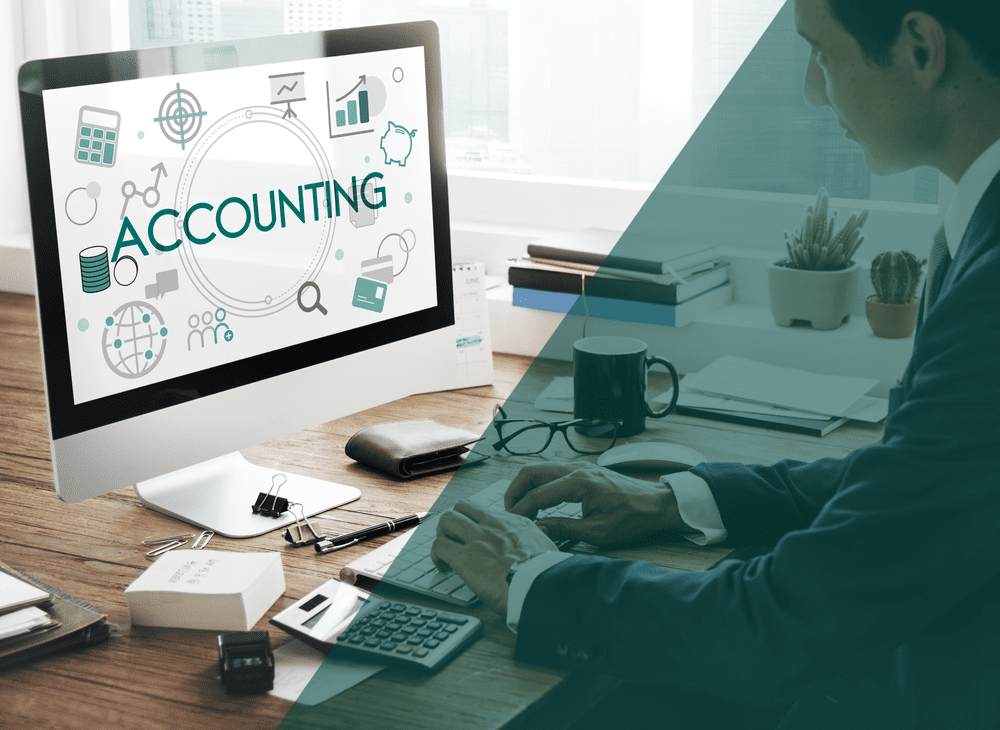The Evolution and Importance of Computerized Accounting In today’s fast-paced world, accounting is no longer just about manual entries and piles of paperwork. With the rise of technology, businesses are shifting from traditional accounting methods to computerized accounting systems (CAS). These systems offer numerous benefits, from increased efficiency to real-time financial insights. In this blog post, we’ll explore the evolution of computerized accounting, its features, benefits, and how it’s revolutionizing the accounting landscape.
What is Computerized Accounting?

The Evolution and Importance of Computerized Accounting Computerized accounting refers to the use of software and digital systems to record, process, and report financial transactions. Unlike traditional accounting methods, which rely on paper-based ledgers and manual calculations, computerized systems automate most of these processes, minimizing human error and saving time.
Popular accounting software options such as QuickBooks, Tally, Xero, and Sage have made it easier for businesses of all sizes to manage their financial data effectively. These systems are equipped with advanced features such as automatic invoicing, tax calculations, payroll processing, and real-time reporting, offering a more streamlined approach to accounting.
The Evolution of Computerized Accounting

The Evolution and Importance of Computerized Accounting Before computers, accountants used paper ledgers to record financial transactions. This process was tedious, time-consuming, and prone to human error. The introduction of spreadsheets like Microsoft Excel in the 1980s revolutionized accounting by providing a more organized and efficient way of tracking financial data.
As technology progressed, dedicated accounting software became more widespread in the 1990s. Early software like Peachtree Accounting (now Sage 50) provided basic bookkeeping functions, but over time, these systems grew more sophisticated, offering features like financial forecasting, audit trails, and integrated bank reconciliation.
The Evolution and Importance of Computerized Accounting Today, cloud-based accounting software has further revolutionized the industry, providing businesses with the flexibility to access their financial data from anywhere, at any time. This move to the cloud also enables real-time updates, collaboration, and data security.
Key Features of Computerized Accounting Systems

- Automation of Financial Transactions: Computerized systems can automatically record financial transactions like sales, purchases, and expenses. This reduces the need for manual data entry and ensures accuracy.
- Real-Time Reporting: One of the major advantages of computerized accounting is the ability to generate real-time financial reports. Businesses can monitor their financial health with up-to-date information at any given moment.
- Simplified Tax Calculation: With built-in tax tables and calculations, computerized systems can automatically calculate taxes, ensuring that businesses comply with local tax laws and regulations.
- Improved Accuracy: Computerized systems reduce the risk of human error that often occurs in manual accounting. Automated processes ensure that calculations are precise and consistent.
- Data Security: Computerized accounting systems often come with robust security features like encryption and backups, protecting sensitive financial data from theft, loss, or damage.
- Scalability: As businesses grow, their financial needs become more complex. Computerized systems are scalable and can handle an increasing volume of transactions without compromising efficiency.
Benefits of Computerized Accounting
- Increased Efficiency: Automating accounting tasks saves businesses a significant amount of time. Instead of manually processing invoices, reconciling bank statements, and calculating taxes, accounting software can handle these tasks swiftly and accurately.
- Cost Savings: Although investing in accounting software requires an initial cost, it can save money in the long run. Automation reduces the need for additional personnel and minimizes costly mistakes.
- Accurate Financial Statements: With all financial data stored and processed electronically, businesses can easily generate accurate and up-to-date financial statements like income statements, balance sheets, and cash flow reports.
- Better Decision-Making: Having real-time access to financial data allows businesses to make informed decisions quickly. This can help businesses manage cash flow, plan for future growth, and identify potential areas for improvement.
- Regulatory Compliance: Accounting software often includes features that ensure compliance with accounting standards, tax regulations, and legal requirements, minimizing the risk of penalties.
- Integration with Other Systems: Many modern accounting systems can integrate with other business tools, such as inventory management systems, payroll software, and customer relationship management (CRM) systems, enabling seamless data flow across departments.
Challenges of Computerized Accounting
While computerized accounting systems offer numerous benefits, there are some challenges that businesses should be aware of:
- Initial Setup Costs: Investing in accounting software and training employees to use the system can incur significant initial costs. Small businesses may find this to be a barrier to entry.
- Learning Curve: Employees may need time to adjust to new software. Proper training and support are essential to ensuring the system is used effectively.
- Technical Issues: Like any technology, computerized accounting systems can experience technical issues such as software crashes or system failures. This can disrupt business operations and result in lost data.
- Data Privacy Concerns: Storing financial data digitally can pose privacy risks if proper security measures aren’t in place. Businesses need to ensure their systems are secure and protected from unauthorized access.
Conclusion: The Future of Computerized Accounting
The Evolution and Importance of Computerized Accounting As technology continues to evolve, so too will computerized accounting systems. We can expect to see even more advanced features, such as artificial intelligence (AI) and machine learning, integrated into accounting software to automate decision-making and predictive analysis.
For businesses, embracing computerized accounting systems is no longer just a matter of convenience—it’s a necessity. These systems offer significant advantages in terms of efficiency, accuracy, and compliance, allowing businesses to focus on their core operations while leaving the financial complexities to the software.
In the coming years, we can anticipate further innovations in cloud computing, real-time financial reporting, and data analytics, all of which will continue to drive the evolution of accounting in the digital age.
Takeaway: Whether you’re running a small startup or managing a large corporation, adopting a computerized accounting system can streamline your financial processes, reduce errors, and provide valuable insights to support better business decisions. It’s time to embrace the future of accounting.



